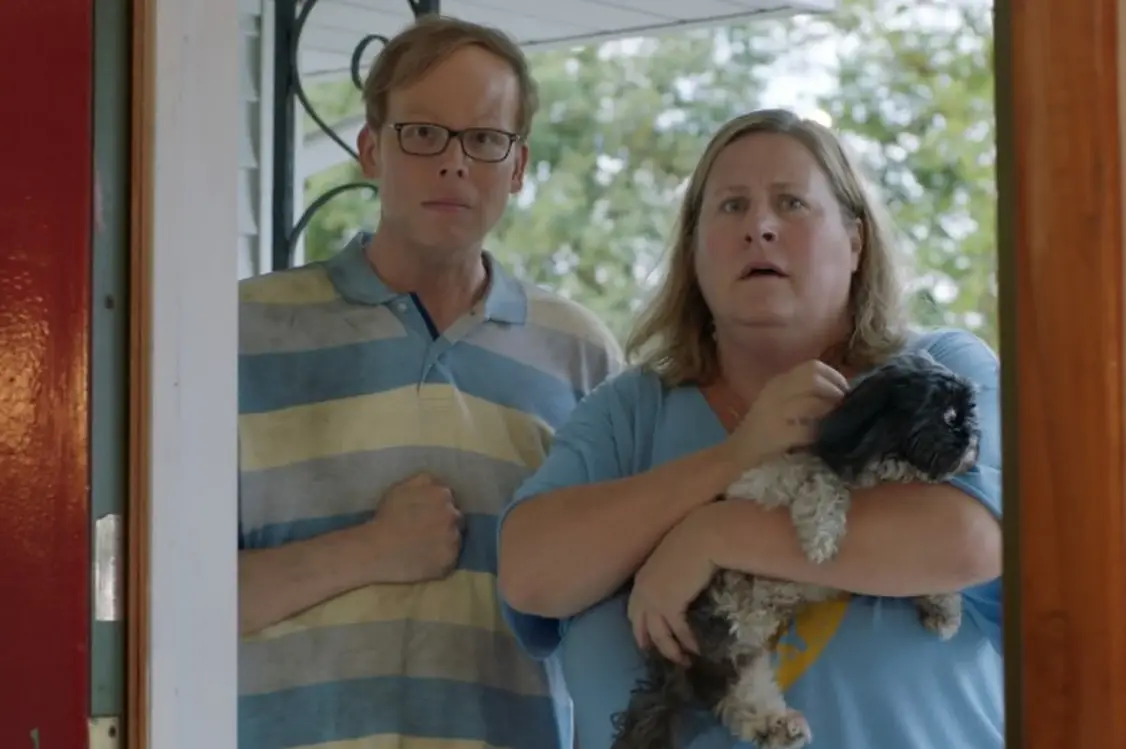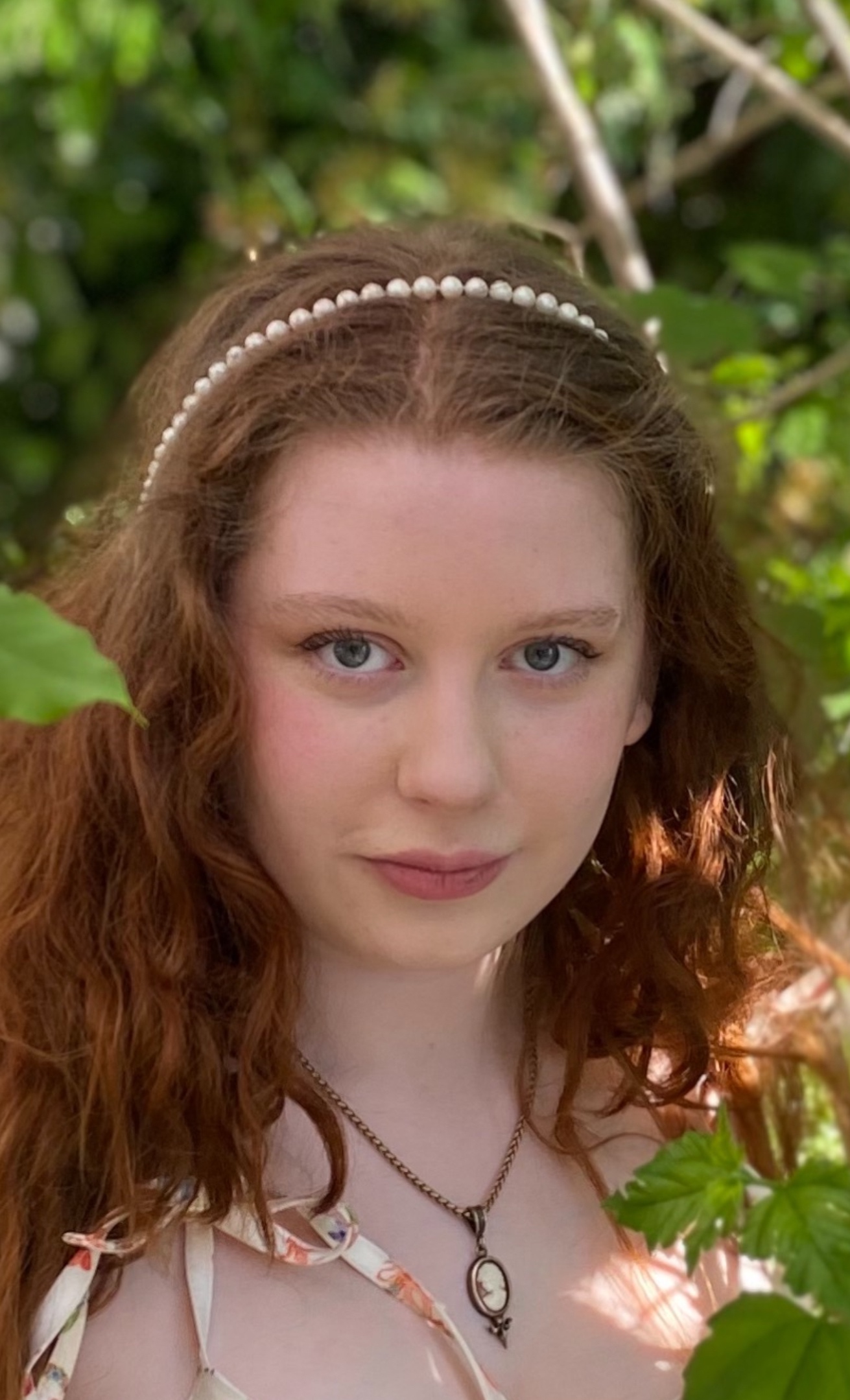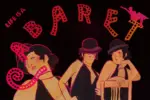As “Somebody Somewhere” opens, viewers gaze upon smooth swaying cornfields and American flags. A family diner sits idly next to an antique sign. The rolling hills feel quietly provincial, similar to what one would see in an old folk painting. “MANHATTAN” is written on a water tower in the distance, yet this isn’t Manhattan, New York. Toto, we’re still in Kansas — Manhattan, Kansas.
Bridget Everett’s new semi-autobiographical HBO series combines humor and heartbreak with ease. The main character, Sam, is tackling life in her Kansas hometown after the death of her sister Holly. Sleeping on her deceased sibling’s couch and working at a dead-end job as a test grader, Sam is undeniably stuck in a rut. Simultaneously, she is forced to deal with her alcoholic mother and her persnickety sister’s oddly distant husband.
Sam is shown floating through the frustrating purgatory of life until she befriends Joel (played by Jeff Hiller), one of her coworkers at the grading center and a former high school choir peer. Joel, humble and warm, invites her to “Choir Practice” — a hush-hush, bawdy cabaret in a shopping mall church. The meet-up attracts the local LGBTQ+ community and others deemed outsiders in their isolated town. Here, Sam rediscovers her love for singing, which gives her purpose and the confidence to vocalize her opinions amid family chaos.
Set in Everett’s actual hometown of Manhattan, Kansas, there is none of the pomp and circumstance that comes with many well-known comedy-dramas. Everett, adorned in a wrinkled t-shirt and jeans, is refreshingly real and understated — straying from her usual persona. Known for her risqué New York City cabaret performances, featuring skimpy clothing and lewd jokes, Everett shows a more vulnerable side to her character in “Somebody Somewhere.” By no means is this Everett’s first appearance on television, though. She can be seen on “Inside Amy Schumer,” “Two Broke Girls,” and the movie rendition of “Sex and the City,” among others.
As Sam is in her 40s and unsure of what to do with her life, she gives viewers a much-needed reminder that nobody has everything figured out. She does not outwardly combust in moments of rage — like when her sister Trisha makes rude remarks about her life path. Her anger brews and her feelings are realistically complex and layered. She does chores in her underwear and awkwardly flirts with neighbors.
Sam is relatable, but not in the annoyingly “quirky” Hollywood way — and that’s what makes her so lovable. Everett’s acting style doesn’t revolve around extreme highs and lows; rather, it focuses on everything in between and encompasses the emotions of a woman stuck in a rut. The series doesn’t pin characters as being starkly good or bad. Even Sam’s sister Trisha, (played by Mary Catherine Garrison) is initially impudent and unlikable but later reveals her gentle and vulnerable side.
Hiller, another cabaret performer, shines in the series. His character Joel is quirky, emotionally vulnerable and undeniably lovable in his breakthrough role. Nuanced and loyal to Sam, Joel is a beacon of hope amid his own gloom. He tackles problems in his middle age — a boyfriend who is jealous of Sam, his dwindling faith in Christianity, and the truth of what actually occurs during his church choir practices. He dreams of owning things as mundane as a Vitamix, while also yearning to travel and have a family.
Joel’s attempt to balance conservative notions of faith with his gay identity is reflective of isolated Middle America as a whole — conflicted. Only in a series like “Somebody Somewhere” do viewers see both antiquated farmers and a lively LGBTQ+ community on the same plane, let alone intertwining. People need to see this representation of a life without any and all issues resulting in an inherent “us against them” mentality, and that — on the contrary — beautiful revelation can be found in celebrating these differences.
The imagery used throughout the series is undeniably real, whether it be the lingering 1980s decor and braces-embellished childhood photos in Sam’s parents’ home, or the bland, windowless boredom of working at the test grading center. “Somebody Somewhere” was written by Hannah Bos and Paul Thureen specifically for Everett, but Hiller’s platonic chemistry with the renowned “funny lady” makes it seem as if he was part of the initial writing process. Their wry, perfectly timed conversations make one feel as if they are sitting alongside the two as they find refuge in comforting hometown familiarity.
The writers did not fall back into the longstanding tropes of the gay best friend often used in the film and television industry; Joel is not a one-dimensional punchline. In an interview with Billy McEntee for Them, Hiller stated, “Joel is so fleshed out, so most of my focus was less on, ‘Is this character a stereotype?’ and more on, ‘How do I make this super authentic, super real?’” Joel’s character has aspirations and life beyond being a supporting character, a far cry from token gay characters like Damien in “Mean Girls.”
Honest representation without flaunting it is one of the show’s main strengths; a perfect example of this is enthusiastic “Chorus Practice” member and agriculture industry professor Fred Rococo, played by Murray Hill. Like Everett, Hill diverges from his exaggerated on-stage persona, where he wows audiences as a drag king. His relationship with Sam’s quiet and genuine father (played by Mike Hagerty) as crop harvest assistant and eventual sympathetic ear is wholesome and simultaneously portrays a beautiful relationship between a secretly distraught, old-fashioned farmer and a charismatic member of the local LGBTQ+ community.
Hopefully, viewers will get to know Fred Rococo better in Season 2, as the series has already been renewed. Beyond the straightforward realism of the show, there is also whimsy built on the legacy of a state that isn’t acknowledged very often. Playing off the state’s famous association with “The Wizard of Oz,” there’s a tornado, a scruffy dog and a rainbow-themed window display at Trisha’s kitschy boutique.
Associations ingrained into cultural memory abound — like Dorothy and her vibrant crew, Sam and her friends are searching for something to make themselves whole. They learn strength has always been in them, and that we are all just somebodies, looking for somewhere to belong.

















